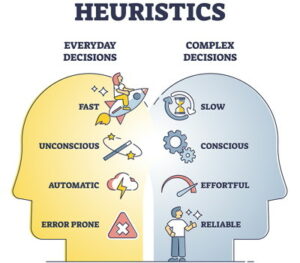 The Halo Effect is a cognitive bias that affects how we perceive and judge individuals, objects or entities based on specific traits or qualities. It occurs when our overall impression of a person or thing is influenced by a single positive characteristic, leading us to attribute other positive traits to them, even if they are unrelated.
The Halo Effect is a cognitive bias that affects how we perceive and judge individuals, objects or entities based on specific traits or qualities. It occurs when our overall impression of a person or thing is influenced by a single positive characteristic, leading us to attribute other positive traits to them, even if they are unrelated.
This bias can also work in the opposite direction, known as the Reverse Halo Effect or Horns Effect, where a single negative trait leads us to assume other negative qualities. In the context of betting psychology, the Halo Effect can impact how bettors make judgments about teams, players or events.
For example, if a team has recently had a series of successful wins, they may be perceived as invincible or consistently strong, leading bettors to place larger bets on them in future matches, regardless of other factors that may affect the outcome.
Similarly, if a team or player is associated with a negative event or poor performance, the Halo Effect may lead to an exaggerated negative perception of their overall abilities, even if they have historically performed well.
This cognitive bias is closely related to the availability heuristic, where we tend to rely on information that is readily available and easily recalled when making decisions.
The Halo Effect v The Availability Heuristic
 The Halo Effect and its connection to the availability heuristic can significantly impact our decision-making when it comes to betting. Both cognitive biases affect how we prioritise and recall information, leading to intuitive judgments that may not always be rational. The Halo Effect occurs when our overall impression of a person or thing influences our judgment of specific traits or qualities related to that individual or object.
The Halo Effect and its connection to the availability heuristic can significantly impact our decision-making when it comes to betting. Both cognitive biases affect how we prioritise and recall information, leading to intuitive judgments that may not always be rational. The Halo Effect occurs when our overall impression of a person or thing influences our judgment of specific traits or qualities related to that individual or object.
In the context of betting, this means that the order in which we receive information about teams, players or events can heavily influence our perception of their chances of winning or losing.
For instance, consider the case of two football teams with the same win, draw and loss record, but the order of their recent results being different. One team may have won four games and then lost the next three, whilst the other team lost three games and then won the four three:
- Team 1: WWWWLLL
- Team 2: LLLWWWW
Despite having the same results, we are more likely to view the team that won recently as having a higher chance of winning the next game due to the Halo Effect. The availability heuristic, on the other hand, involves relying on readily available information when making judgments or decisions.
In the realm of betting, this means that we may base our predictions on recent or easily accessible data rather than considering a broader range of relevant factors.
For example, many people tend to consider Brazil as one of the best football teams in the world due to their historical success in winning the FIFA World Cup. However, the availability heuristic might cause us to overlook the fact that their victories were concentrated in specific periods, and they may not always be as dominant as perceived.
When we bet intuitively, without thorough analysis and consideration of all relevant information, we are prone to making bad decisions.
The Importance Of The Halo Effect
 The order in which we receive information can have a significant impact on our predictions and betting choices. If we rely on the first pieces of data we encounter without further research, we may fall into the trap of the Halo Effect, giving undue importance to certain factors or teams based on their initial presentation.
The order in which we receive information can have a significant impact on our predictions and betting choices. If we rely on the first pieces of data we encounter without further research, we may fall into the trap of the Halo Effect, giving undue importance to certain factors or teams based on their initial presentation.
On top of that, the reverse halo effect can also skew our perceptions, as we may become overly critical or pessimistic about the chances of a team or player due to a recent poor performance. This bias can influence our future assessments and lead us to underestimate their potential for improvement or success.
To make more informed and rational betting decisions, it is essential to overcome these cognitive biases. Instead of relying solely on intuitive judgments, bettors should conduct thorough research, consider historical data, analyse team and player performances and take into account a variety of factors that can influence the outcome of a game or event.
By employing a systematic and data-driven approach to betting, individuals can mitigate the impact of the Halo Effect and availability heuristic, making more objective and accurate predictions. Recognising these cognitive biases is the first step towards becoming a smarter and more successful bettor.
Avoiding Falling Foul Of The Halo Effect

If you’re hoping to avoid falling foul of the Halo Effect, it is crucial to adopt a disciplined betting strategy that includes setting clear goals, managing bankrolls and avoiding impulsive decisions based on emotional reactions.
One of the first things that you can do is to conduct thorough research on teams, players and events before placing any bets. Look beyond recent results and consider long-term trends, head-to-head records, injuries and other relevant factors that can influence outcomes. The more research you do, the less likely you are to fall for one or two bits of information.
Developing a well-defined betting plan that includes clear objectives and a bankroll management strategy can also help. Set realistic expectations and stick to your plan, regardless of recent results or emotional impulses.
The availability heuristic may tempt bettors to chase losses and place larger bets to recover losses quickly, which is important to realise. This impulsive behaviour can lead to further losses and irrational decisions. Stick to your betting plan and avoid chasing losses. One thing that will help is to keep a detailed record of your betting history to assess your performance objectively.
Analyse both your successes and your failures in order to identify patterns and areas for improvement. Do not rely solely on readily available information or mainstream media. Look for diverse sources of data and opinions to gain a more comprehensive understanding of teams and events. Emotions can cloud judgment, leading to biased decisions.
Recognise emotional influences and make conscious efforts to remain objective and rational in your betting choices. This includes not jumping to conclusions based on limited information or initial impressions. Take the time to gather all relevant data and consider multiple perspectives before making betting decisions.
Be mindful of your betting limits and avoid placing bets beyond your financial capacity. Responsible betting ensures that you can enjoy the experience without facing significant financial risks. Many online platforms offer betting tools, such as odds comparison, statistics databases and betting calculators. Make use of these tools to enhance your analysis and decision-making process.
Reflect on your past betting decisions and learn from both successful and unsuccessful outcomes. Continuous learning and self-improvement will lead to more informed betting choices over time. By incorporating these strategies into your betting approach, you can overcome the Halo Effect and availability heuristic.
You’re looking to be in a situation where you can make more rational and calculated predictions. Remember that successful betting requires discipline, research and a well-thought-out strategy. Avoid falling into the trap of intuitive judgments and take a systematic approach to maximise your chances of long-term success in the world of sports betting.
You need to focus on what you known and research what you don’t. Try not to make the first thing you learn the most dominant factor or you will never get out of the trap of the Halo Effect in your betting strategy.
